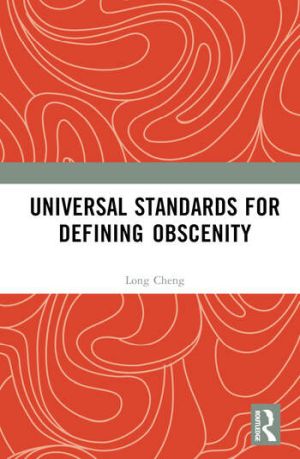
In the existing literature, there is no universal standard for defining obscenity. The book aims to demonstrate that there indeed exist underlying universal standards for defining obscenity (USDOs). However, their application to different contexts of time, place, and culture, may legitimately result in varied manifestations.
The author examines a definition of obscenity proposed by the political and legal theorist Harry M. Clor, within John Finnis’s natural law theoretical framework. He also explores how positive law, including legislation, case law, and customary law, should respond to the proposed USDOs. The book addresses the theoretical foundation of the determination and regulation of obscenity, and it is supplemented with examples of legal practices from several jurisdictions, such as the United States, the United Kingdom, Canada, and Germany.
The book will appeal to scholars of legal philosophy, natural law theories, obscenity law, and free speech.